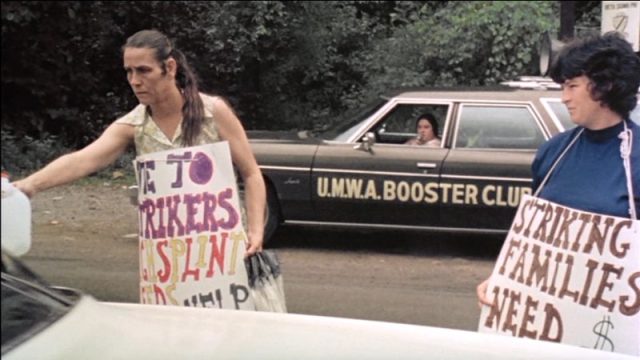It looks like my partner’s workplace did not approve their union. We are both sorely disappointed by this; honestly a lot of the difficulties in our household right now would be eased by, say, a union that stood up and said, “No, your schedule cannot still be uncertain for next week on the last day of this week.” I can’t help wondering if the results would be different were the writer’s strike more in the public consciousness and the awareness of what the writers are trying to get, and long haven’t, and how union and strike are the tools in the writers’ arsenal to earn a living wage for work essential to their industry.
There are definitely movies about the value of unions, not least because writers, directors, and actors are all aware of their union protections. Everything from Harlan County, USA, to Newsies. Often, these movies are about the brutal suppression of unions over the years. They make clear how having a union has long been life and death to workers, how the protections unions offer are vital to workers. Heck, in The Devil and Miss Jones, the owner of the company discovers that a union would protect his workers from abuses even he himself disapproves of. It took stepping into the workers’ shoes to understand the union’s importance.
Oh, union movies are not painting the universal prospect of a workers’ utopia. Even the documentaries often include details about the darker side—hard to talk about unions without talking about organized crime, after all. There’s union in-fighting. There’s bigotry; several union movies are about how the union doesn’t protect women in some way, even though several are also about the important role women play in union activities. Other union movies discuss other bigotries—you can’t talk Cesar Chavez without talking racism, after all.
It’s not surprising that the union movie is an international phenomenon, either. French and British movies are notable, as are Italian ones, and that’s just what I can find doing a search on English-language sources. It seems likely there are plenty of early Soviet ones, and if there isn’t a documentary about the importance of Solidarity in Polish history, I’d be shocked. Quite a lot of history of the last couple of centuries is written in unions—while John Frankenheimer may have been born in Queens, but The Burning Season is set in the Brazilian rainforest. Unions matter there, too.
My partner asked me last night when Colbert would be coming back, and I told him it was after the writers’ strike was resolved. We can wait. The writers are asking for their due. The actors may be about to follow suit. Without them, the movies we love don’t exist. Even if AI could do their jobs, and the evidence is clear that it can’t, that’s no excuse not to pay the people who are actually doing the work now. Support unions wherever you find them, including in the arts.
And on top of all that, my primary income looks certain to be late next month thanks to political goings-on; keep me afloat by supporting my Patreon or Ko-fi!

